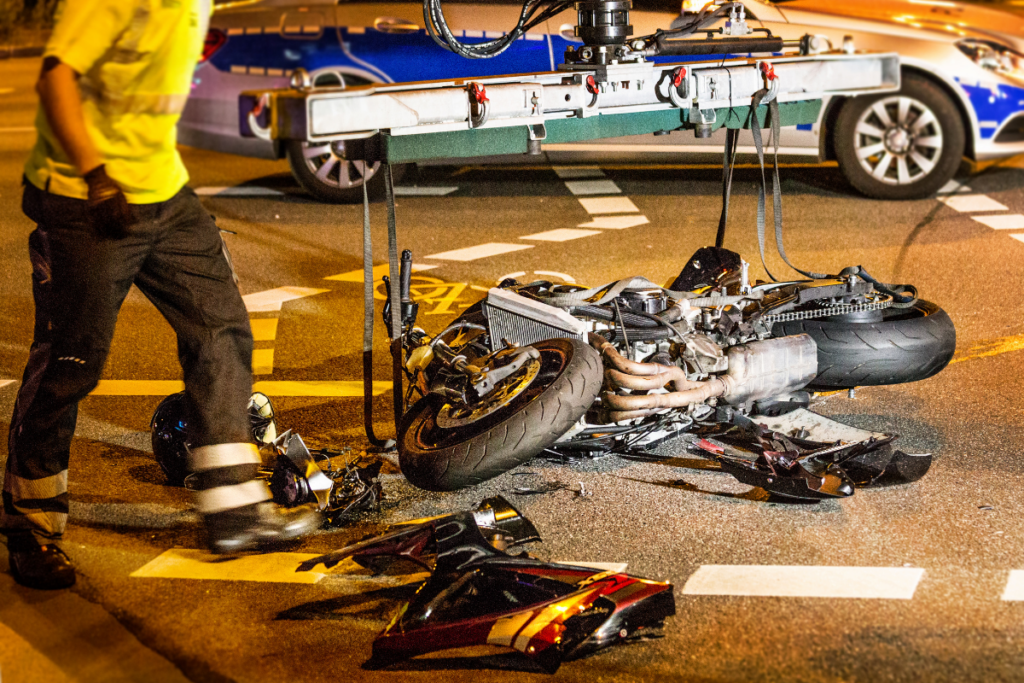Did you know that in Florida, motorcycle accidents make up a significant portion of all traffic fatalities? In fact, the Sunshine State has one of the highest rates of motorcycle accidents in the country. In Fort Lauderdale alone, motorcycle riders face unique challenges, from congested roads to unpredictable weather, all of which increase the likelihood of accidents.
If you find yourself involved in a motorcycle accident, it’s crucial to know exactly what steps to take. In this guide, we’ll walk you through the immediate actions to take after an accident, how to handle the aftermath, and how Fort Lauderdale motorcycle accident lawyers can help you navigate the legal and insurance processes.
Whether you’re dealing with injuries, property damage, or the legal complexities that follow, understanding your next steps can make a huge difference in the outcome.
Immediate Steps to Take After a Motorcycle Accident
Prioritize Your Safety and Seek Medical Attention
The moments after a crash can be chaotic and confusing. If you’re able to move safely, get out of traffic and away from further danger. Check yourself and others for injuries, and call 911 immediately.
Even if you believe your injuries are minor, seek medical attention right away. Many serious conditions like internal bleeding, head trauma, or soft tissue injuries may not show symptoms immediately. Medical records will also serve as vital documentation if you pursue a legal claim later.
Report the Accident to Law Enforcement
Florida law requires that any crash involving injury, death, or property damage over $500 be reported to law enforcement. According to Florida Statute § 316.066, the investigating officer must submit a written report within 10 days.
Wait for the police to arrive and provide a truthful, concise statement. Avoid speculating or admitting fault. The official police report will be a critical piece of evidence for your insurance and any legal action that may follow.
Document the Scene and Gather Evidence
If you’re able to do so safely, start collecting evidence at the scene. This information will be crucial when filing an insurance claim or building a legal case:
- Take photos and videos of the accident scene, including vehicle positions, skid marks, road conditions, traffic signs, and any visible injuries.
- Exchange information with other parties involved — names, contact details, insurance providers, and license plate numbers.
- Collect witness contact information, as their statements can support your version of events.
- Note the location, time, weather conditions, and anything else that might have contributed to the accident.
Notify Your Insurance Company
Report the accident to your insurance provider as soon as possible. Stick to the facts and avoid making assumptions or accepting blame. If the other driver’s insurer contacts you, do not provide a recorded statement without first seeking legal advice. Insurance companies often try to minimize payouts or shift fault, especially in motorcycle accident cases.
Understand Florida’s Comparative Fault Rule
Florida follows a modified comparative negligence system (as of 2025), which means your compensation may be reduced if you’re found partially at fault for the accident. Under Florida Statute § 768.81, you can only recover damages if you’re less than 50% at fault.
For example, if you’re awarded $100,000 in damages but are found to be 30% at fault, your compensation would be reduced to $70,000. This makes it even more important to gather strong evidence and protect your legal position from the start.
Be Aware of the Statute of Limitations
You have a limited time to file a personal injury lawsuit after a motorcycle accident in Florida. As of recent legal updates, the statute of limitations for negligence-based claims is two years from the date of the accident.
Missing this deadline could result in the loss of your right to pursue compensation entirely. Prompt legal action ensures that critical evidence is preserved and your case remains viable.
Know What Damages You Can Recover
If another party is found liable for your accident, you may be entitled to compensation for:
- Medical expenses (past, present, and future)
- Lost wages and loss of earning capacity
- Pain and suffering
- Emotional distress
- Property damage
- Rehabilitation and long-term care
Keep thorough records of all related expenses, including receipts, medical bills, and time missed from work. These documents can strengthen your case and support a more accurate valuation of your damages.
Final Thoughts
Motorcycle accidents in Fort Lauderdale can be life-altering events. Between Florida’s unique traffic laws, high crash rates, and insurance complexities, navigating the aftermath is no easy task. Knowing your rights, following proper procedures, and preserving evidence can significantly improve your chances of a fair recovery.



